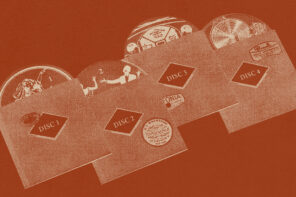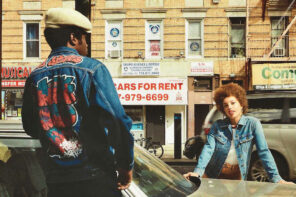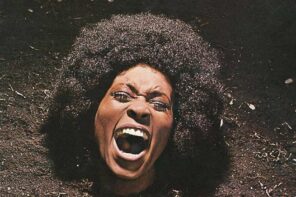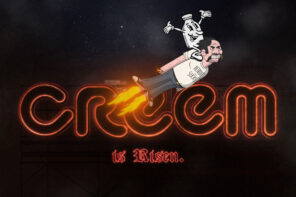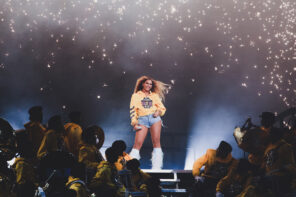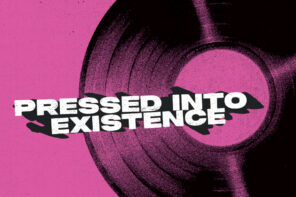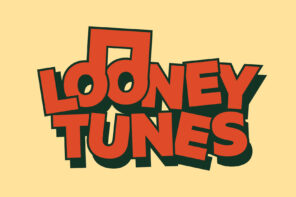We’re Gonna Need a Bigger Boat
Yacht rock is having something of another moment. No longer solely the domain of ironically clad cover bands with groan inducing names like Yächtly Crëw, Yachty by Nature and Monsters of Yacht, the genre has smooved its way right into the Spotify new releases bin. Troy Farmer helps Whalebone wade through the syrup and get to the gooey bottom of the yachtaissance.
Lets go to the mixtape:
Captain’s Hats On
How do we define yacht rock?
Troy: I mean, this is one of those non-genre genres, but I think most people would say it’s pretty firmly in the soft rock realm—smoothed-out adult contemporary pop music that’s much more ‘yacht’ than ‘rock.’ The best yacht rock is so cheesy and inauthentic that it breaks the dial and is received as lovingly sincere. Some serious journalists have actually likened the original emergence of yacht rock in the ’70s and ’80s to the turbulence in the world at the time following the ‘failed idealism’ of the ’60s, hypothesizing that people needed to turn inward in such socio-politically and economically tough times. I feel like that could explain it
Are there persistent themes or is it all in the sound and mood for you?
Troy: I’d say the most persistent themes, both in first wave (hah) yacht rock and this new wave of it would be intense-yet-smooth feelings of romantic, emotional, and physical love accented by sax solos and unnecessary key changes.
What is the appropriate attire for listening to this playlist?
Troy: Captain’s hat, anchor print shorts, those mirror sunglasses, light-colored pleated pants or skirt, and a cable knit sweater draped over one’s shoulders or tied around waist.
It is perhaps the defining challenge of our times.
What’s chiller? Chillwave or roséwave?
Troy: I’d say chillwave—some of that music can veer to boring for me. Though roséwave is even less consistently defined than yacht rock, in my opinion. Some feel that it’s this new yacht rock, others think it’s just smooth or hook-filled light pop. I like the term but we have yet to come together as a society in shared understanding of it. It is perhaps the defining challenge of our times.
Are you on a boat right now?
Troy: I’m on the ship of life sailing through this beautiful, mysterious universe, man.
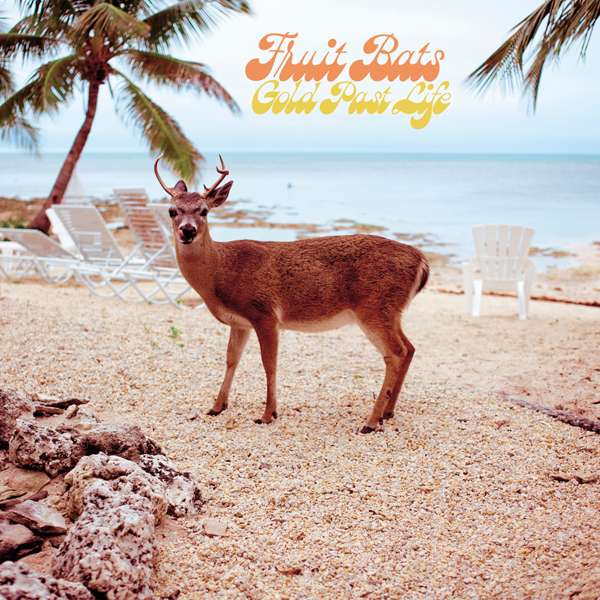
Eric D. Johnson can definitely pull out a Hall and Oats-worthy falsetto. What else gives Fruit Bats’ “Gold Past Life” a spot on this modern yacht rock playlist?
Troy: The smoothness, clearly. This song was a surprise for me—I mainly know these guys from their 2005 album, Spelled in Bones, and have always thought of them as squarely folk rock, but this sounds like late Bee Gees to me, in the best possible way. But back to the point, I think the test is: Does this song make you feel like you’re sailing; does it take you away to where you’ve always heard it could be, just a dream and the wind to carry you, and will you soon be free?
Does this song make you feel like you’re sailing?
In “This Life” by Vampire Weekend there is maybe an oblique reference to “It Never Rains in Southern California” by Albert Hammond. Maybe that’s a stretch, but where does Albert Hammond fall on the yacht rock spectrum?
Troy: Hammond’s pretty smooth, but not that smooth—I’d place him somewhere between “Willow Tree Bark” and “Old Velvet” on the Cross–Loggins Scale of Smoothness; nowhere near the ultimate smooth—the Jif-covered bottom of Baby Jesus. But that is a solid song.
“In this Time” by HAERTS is the first female vocal on your playlist. It’s got a real Stevie Nicks later solo stuff kind of vibe. What’s women’s relationship to the genre?
Troy: Yeah, Nicks seems to have broken the glass bottom of the boat that is yacht rock—I can’t really think of many more in that original wave (maybe Streisand’s 1980 duet with Barry Gibb, “Guilty”). Now it’s a lot of the same, seemingly, without straying into other genres like the aforementioned roséwave. Maybe that says something about dudes’ privilege to leisure? Or maybe women are largely simply making better, more progressive music.
One thing that’s kind of cool about the callback to some old late ’70s and early ’80s sounds is that obviously that slick sheen was the height of studio technology and today you can achieve that in your basement. Any bedroom yacht rock bands you like?
Troy: Yeah, I think it tends to become something else when you strip away the studio sheen, like saccharine-sweet folk or singer-songwriter. Ezra Koenig and company did a surprise Earth Day show in a park near us with stripped down instrumentation and his new stuff came across kind of like that.
Maybe we’re just shutting out the problems of the world, but maybe we’re focusing on the good, too, reaching across the musical aisle to connect in our commonality.
“The Tuxedo Way” by Tuxedo (Mayer Hawthorne and Jake One) is a fun disco jam. A question in two parts: A) what is disco’s relation to yacht rock? B) How do you feel about bands putting their names in song titles?
Troy: Disco is on the most fun, dancey side of yacht rock, opposite the more folk-/singer-songwriter-influenced yacht rock, so some disco songs can be considered yacht rock and vice versa, but the Venn diagram certainly isn’t a perfect circle. For instance, the Brothers Gibb definitely did some yacht rock in time, but when a dude requested Yachty By Nature—a particularly excellent yacht rock tribute band that played a wedding I joyfully attended last year—play “Staying Alive,” I did indeed shake my damn head. They killed it nonetheless.
Oh, and very pro-. I think we should require of bands that they have a song with their name in it; kind of like a musical mission statement. Then bands won’t have to constantly answer that ever-present ‘What’s your band name mean’ question. I’d really like to hear Steely Dan’s….
Playlist finishes strong with some Anderson Pack, Flying Lotus and Thundercat. How do these play into the oeuvre?
Troy: Yeah, there’s this definitive yacht rock leaning for a particular sect of current popular hip hop, most of it coming out of Southern California, like everyone you just mentioned there. I think Thundercat (AKA Stephen Bruner) has spoken most prolifically and clearly about the connection between R+B and hip hop and the soft rock world, essentially saying that the most creative creatives look outside their immediate vicinity to grow their work and don’t let their influences become insular or limiting. As with the genre itself, if it is a genre, there’s sincerity to be gleened from all that insincerity or cheesiness—maybe we’re just shutting out the problems of the world, but maybe we’re focusing on the good, too, reaching across the musical aisle to connect in our commonality. As a wise man once said, “I’m alright, nobody worry ’bout me, why you got to gimme a fight? Can’t you just let it be?”


